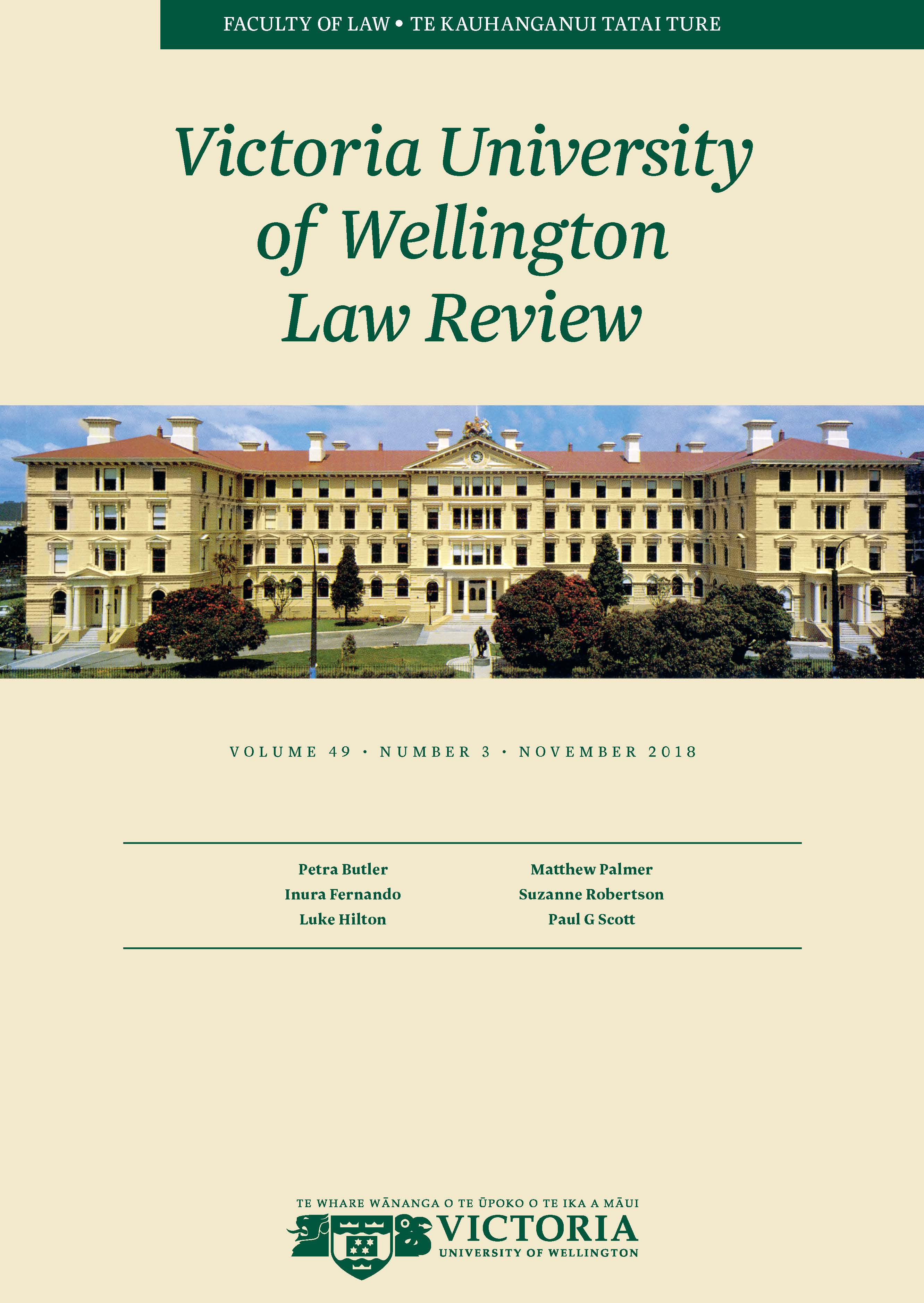Litigating Climate Change – Of Politics and Political Questions: A Comparative Analysis of Justiciability of Climate Change in the United States and Canada
DOI:
https://doi.org/10.26686/vuwlr.v49i3.5327Abstract
This article seeks to highlight the differences in the jurisprudence on the justiciability of climate change in Canada and the United States. Underpinning this article are questions about the appropriate role of the judiciary in addressing polycentric policy issues. This article will first outline the policy context in which legal issues of climate change are framed. Second, this article will explore the general doctrines of justiciability in Canada and the United States, and how these interrelate with specific doctrines on the justiciability of climate change. The author argues that, with respect to the justiciability of climate change, the approach of the courts in the United States is more principled than that of the Canadian courts, the Canadian approach being more broadly framed. This is because the United States approach encompasses the classic strand of the political questions doctrine. Conversely, though the courts in Canada deny the existence of an American-style political questions doctrine, they unwittingly follow its prudential strand. This has negative implications for legal reasoning. This means that despite contrary appearances from the United States executive, the courts in the United States provide a stronger framework for the protection of the climate.
Downloads
Downloads
Published
How to Cite
Issue
Section
License
Authors retain copyright in their work published in the Victoria University of Wellington Law Review.


